Business
Japanese Automakers Recall 3.4m Cars
Japanese automakers Honda, Nissan, Toyota and Mazda are recalling around 3.4 million cars due to airbag defects.
Toyota said it was recalling 1.7 million cars around the world, including some popular Corolla, Matrix and Camry models. Nissan recalled around 480,000 cars, while Mazda added another 45,000.
Honda which is recalling more than 1.1 million autos said the recall was necessary to replace passenger front airbag inflators.
“It is possible that the passenger front airbag inflators in affected vehicles may deploy with too much pressure, which may cause the inflator casing to rupture and could result in injury,” the company said in a statement.
Most of the recalled cars appeared to be from the 2001, 2002 and 2003 model years.
Honda said it was aware of one crash in which a passenger front airbag casing had ruptured after being deployed with too much pressure. The automaker said it was not aware of any injuries or deaths that may have resulted from the defect.
Honda has had previous recalls, beginning in 2008, for the same problem in driver’s side airbags.
Toyota said it had reports of five airbag malfunctions, but no injuries.
Toyota spokeswoman Shino Yamada said the airbags in question were manufactured by Takata Corp., a Japan-based supplier.
Takata shares declined sharply after the recall was issued, at one point falling more than 15% before recovering to close down 9%.
In the United States, the Honda vehicles involved in the recall include 2001 to 2003 Civics and CR-Vs and 2002 Odyssey minivans. Nissan is recalling 2001 to 2003 Maximas, Pathfinders, Sentras, Infiniti I35s and Infiniti QX4s in the U.S., while Mazda is recalling 147 2003 and 2004 Mazda6 sedans and two 2004 Mazda RX-8s.
Toyota said it is still working to identify the exact models involved in its airbag recall.
The recall, while large, is not without precedent. The United States alone has had 13 recalls of more than three million units, according to a list maintained by the D.C.-based Center for Auto Safety.
For Toyota, the recall is another blow to its carefully cultivated reputation for quality.
The company announced in October a recall of 7.43 million cars due to a power window problem that posed a fire risk.
Toyota’s largest recall came in 2009 and 2010, when more than 8 million units were brought in for a potential problem involving sticky accelerator pedals. In that case, dealers were told to suspend sales of eight models, and production of those models stopped temporarily.
Business
CBN Predicts 4.17% GDP Growth In 2025

The Central Bank of Nigeria (CBN) has announced that the 2025 economic indices indicate a positive outlook, with the nation’s GDP expected to accelerate to 4.17 per cent for faster economic growth.
Mr Muhammad Abdullahi, Deputy Governor, Economic Policy Directorate, CBN, revealed this on Tuesday during the 11th edition of the National Economic Outlook: Implications for Businesses in 2025.
The hybrid event, convened in Lagos, was organised by the Chartered Institute of Bankers of Nigeria (CIBN) Centre for Financial Studies in collaboration with B. Adedipe Associates Ltd.
Abdullahi said the nation’s 2025 economic projections remained optimistic with fiscal and monetary reforms already paying off, resulting in the GDP anticipated rise from 3.36 per cent recorded in 2024.
According to him, the growth is anchored on sustained implementation of government reforms, stable crude oil prices, and improvements in domestic oil production.
Abdullahi also stated that stability in the exchange rate would play a crucial role in maintaining the positive trajectory, with the inflation rate projected to decline due to the impact of economic reforms.
“Achieving the targeted inflation rate of 15 per cent in 2025 will require effective collaboration between monetary and fiscal authorities, alongside private sector participation for a stable economic environment,” he said.
The keynote speaker said that the apex bank would prioritise price stability and strengthen the financial sector to support SMEs and critical sectors for businesses to thrive.
Abdullahi noted that the nation’s evolving policy landscape presented both challenges and opportunities for businesses to thrive.
“The government is making deliberate strides to diversify its revenue streams and reduce dependence on the volatile oil sector.
“Through ongoing tax reforms aimed at broadening the tax base and improving collection efficiency, the government is working to establish a more sustainable fiscal environment.
“While these reforms may present challenges in the short term, they are essential for building a more resilient and diversified economy in the long run.
“As businesses, it is crucial to adapt to these changes, understanding that they will ultimately strengthen the economic foundation for future growth.
“As we move forward on this path of exploration and collaboration, we must remain focused on the vast opportunities before us.
“Nigeria’s abundant resources, coupled with the current administration’s commitment to economic reform, offer a fertile ground for innovation, investment, and sustainable growth,” Abdullahi said.
Similarly, Prof. Pius Olanrewaju, President/Chairman of the Council, Chartered Institute of Bankers of Nigeria (CIBN), said 2024 presented both challenges and opportunities.
He noted that the GDP signalled gradual recovery amidst global and domestic pressures.
“As we move into 2025, we are presented with both the opportunity and responsibility to critically examine the economic landscape.
“This forum will help us identify the risks, harness the opportunities, and strategize for the future,” Olarenwaju noted.
He commended the collaboration of experts at the annual event, which included Dr Kabir Katata, Director, Research, Policy and International Relations, Nigeria Deposit Insurance Corporation; and Dr Henrietta Onwuegbuzie of the Lagos Business School.
Others were Akinsola Akeredolu-Ale, CEO, Lagos Commodities and Fixtures Exchange; Mr Akeem Lawal, Managing Director Interswitch (Pure pay); and Chinwe Uzoho, Regional Managing Director, West and Central Africa Network International.
Business
Minister Inspects Nigeria/Benin Republic-owned Sugar Firm … Decries Decrepit Condition
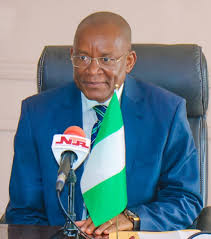
Business
NGA Becomes Official Partner To 29th Gas Conference … As President Set To Address 2025 World Summit
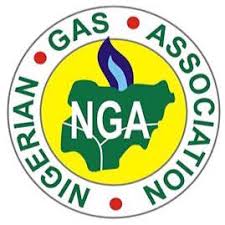
-
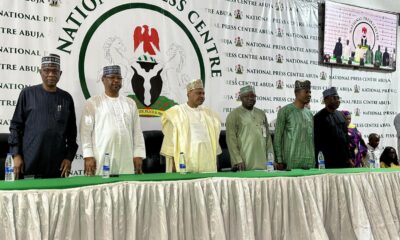
 News3 days ago
News3 days agoNigeria Ready To Host UNESCO Media, Information Literacy Institute – Minister
-
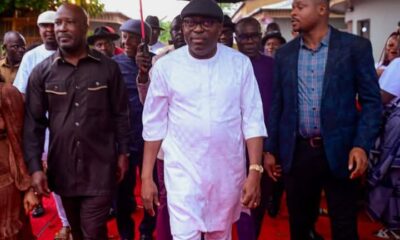
 News3 days ago
News3 days agoFubara Inaugurates Road Project To Celebrate Jackrich On Birthday
-

 Featured3 days ago
Featured3 days agoNigeria, S/Arabia, Deepen Ties On Solid Mineral Exploration
-
Niger Delta3 days ago
RSBOPP Moves To Review Procurement Processes
-
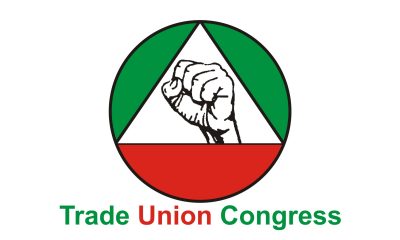
 News3 days ago
News3 days agoTUC Rejects VAT Hike, Urges Pro-people Tax Reforms
-

 Business3 days ago
Business3 days agoCBN Predicts 4.17% GDP Growth In 2025
-
Rivers3 days ago
100 Days: Omuma Council Boss Lists Achievements
-
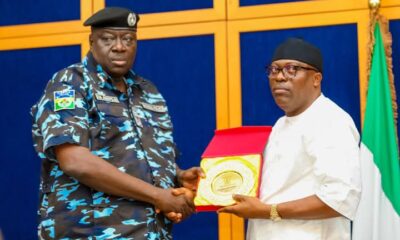
 Featured3 days ago
Featured3 days agoTinubu Pledges Peace, Justice, Development in Ogoniland….Fubara Lauds President on Peace Talks

